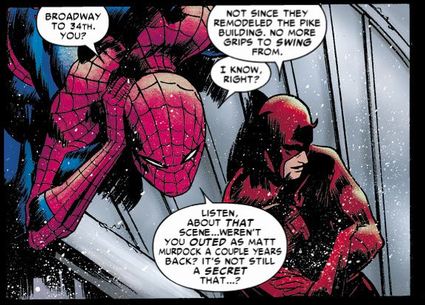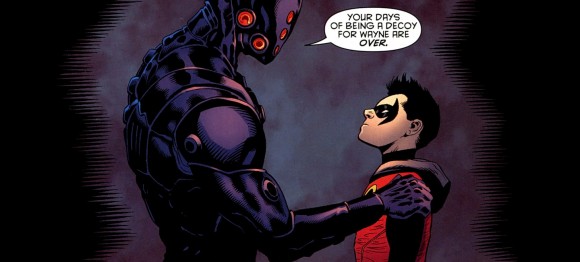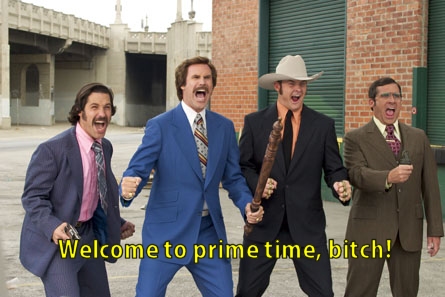The crux of the American Dream, of America as a concept, is that we are required to be better. Not born better, because the idea of hereditary quality/morality or divine right inevitably results in corruption. The better I’m talking about is a struggle to become better. A need to be better. We need to be better than our enemies, better than our past, and better than the darker aspects of our minds. We are here. We need to be there. We need to work at being better. It isn’t a static state. It’s a constant struggle. We choose to go against our baser natures for the greater good. We avoid the easy routes to fame or fortune in favor of a more honest and rewarding path. That’s the dream. But when people talk about America the Beautiful, that’s what they’re talking about. The American Dream is about being a good person and having that be paid forward throughout every level of society. Sometimes it works out. A lot of times it doesn’t. It’s always worth believing in and striving for, though. It’s a goal, not a status quo or an end point.
Captain America, my favorite interpretation of him anyway, represents that Dream. As a result, he’s often disappointed with the actions of the country as a whole, from its government to its people. Cap represents the best of us, and that’s the source of his disappointment. There’s a Superman scene that I like a lot, created by Garth Ennis and John McCrea in JLA/Hitman. He flies up to Earth orbit and looks down at his planet. “If you knew how you are loved,” he thinks, “not one of you would raise a hand in rage again.”
It’s Superman, but it fits for Cap, too. He knows the heights humanity and America are capable of, and he’s often disappointed in the fact that the country and her people fall so short of the mark so frequently. The Falcon isn’t someone to be coddled or emancipated or attacked or guarded against. He’s Cap’s brother, someone he loves dearly and treats like family. The flag isn’t a scrap of cloth. It’s a symbol of what unity can do. And on and on and on. He’s a good man, and he represents a good thing.
Here’s a page from Secret Avengers 21, by Warren Ellis, Stuart Immonen, Wade von Grawbadger, Dave Lanphear, and Chris Sotomayor. Drops this week.

Torture. It’s been a big deal over the past few years. The US has engaged in torture for ages, from slavery to the Cold War, but now that it’s public, it’s a lot harder to ignore. The behavior of the US government in Iraq, Guantanamo Bay, and elsewhere has been deplorable on that front. Torture is a pretty simple concept. Even a child can define it. “I am going to hurt you until you give me what I want.”
But at some point, the government redefined it so that things like making someone think they’re drowning don’t count as torture. Waterboarding is something that Japanese soldiers were hanged for back in the World War II days, was defined as illegal in the Vietnam War, was used in apartheid South Africa on political prisoners, and was a favored tactic of both the Khmer Rouge (who murdered over a million people for unbelievably stupid and petty reasons) and Pinochet’s Chile.
Waterboarding, torture in general really, is indefensible, but the defense usually involves the words “necessity” and “protection” and other scaremongering ideas. We have to hurt them before they can hurt us.
If there is any one thing that it is important that 2012 America should be better than, it’s torture. It is an actual evil, and people who engage in it have no right to call themselves good people. Being better is about being better, not lowering yourself to the level of Pol Pot or Augusto Pinochet because you’re afraid of someone or something. Being better is about finding better ways to solve problems. Being better is about not hurting unarmed, defenseless men and women. Torture is vile.
“I don’t believe in torture. It’s ugly, dishonorable, and unreliable. So I’m going to let my colleagues do it.”
And here we meet the 2012 Captain America. He’s the antithesis of the Captain America that I enjoy reading about. He’s exactly what America should stand against. He’s a coward. This isn’t a momentary lapse in judgment. This is a man who knows better, who explains that he knows better even as he goes against what he believes, turns his back in the face of actual evil. He allows the existence of evil because it is convenient, which may well be worse than the evil itself.
There’s that axiom about all evil needing to prosper is for good men to do nothing, but I don’t agree with that at all. Good men don’t do nothing. Good men stop evil when it rears its head in their presence. They stamp it out and refuse to allow it to exist. Good men do better.
It’s 2012, and Captain America turns his back and tacitly endorses one of the worst crimes of the US government in recent memory. He turns his back on everything he should stand for and approves the use of everything America should not be. Captain America broke.
That’s vile. Maybe it’s a cynical statement on American politics and hypocrisy. Maybe not. It’s still vile. Reject it.













